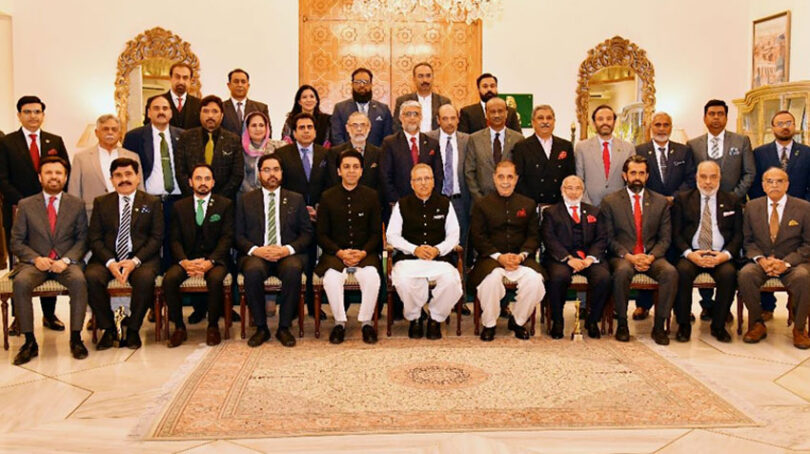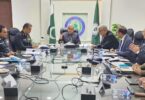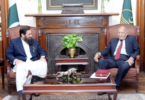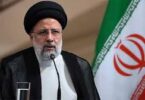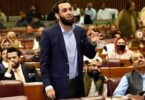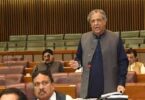F.P. Report
ISLAMABAD: President Dr Arif Alvi has termed the continuation of policies as essential for sustainable economic growth, promoting industrialization and attracting foreign investment. He added that hurdles in the process of filing taxes by the business community needed to be removed, besides providing facilitation to the business community and addressing their grievances and issues.
The President expressed these views while addressing the 2nd Rawalpindi Chamber of Commerce and Industry (RCCI) Taxpayer Recognition Awards, at Aiwan-e-Sadr, today. Group Leader RCCI, Mr Sohail Altaf, President RCCI, Mr Saqib Rafiq, Federal Tax Ombudsman (FTO), Dr Asif Mahmood Jah, representatives of FBR, and members of the business community attended the ceremony.
Addressing the ceremony, the President termed digitalization of the economy and business processes as essential for enhancing tax collection, promoting tax culture and transparency in the economy.
He regretted that the low tax-to-GDP ratio had been a perennial issue in Pakistan, ever since its establishment, adding that tax culture in the country could be promoted by simplifying and easing the tax regime, reducing hurdles in the taxation system. He also called for encouraging businessmen to pay more taxes, judiciously and honestly spending the collected tax, reducing corruption and pilferage, and ensuring merit and transparency. The President said that Pakistan’s economy had been under stress due to multiple internal and external factors, adding that all stakeholders needed to act responsibly and display a unity of purpose to come out of the present situation.
The President also urged the need to focus on the skill development of youth and establishing partnerships between academia and industry, besides providing education to over 20 million out-of-school children. He said that it was the collective responsibility of the state and society to care for the most vulnerable sections of its population. He regretted that Pakistan’s education sector had declined, adding that efforts needed to be made to improve the educational standards throughout the country, besides enhancing the enrollment of students in Higher Educational Institutions (HEIs).
The President also called upon the members of the business community to enhance the participation of women in businesses and industry, besides providing them safe and friendly environment at the workplace. He also impressed upon the need to establish baseline KPIs regarding the inclusion of women and persons with disabilities (PWDs) in the private sector, instead of merely paying lip service to the cause of women and PWD’s inclusion in the mainstream of society.
The Group Leader of RCCI, Mr Sohail Altaf, highlighted the need for political and economic stability, continuation of policies, providing facilitation to businesses, and taking steps to address their grievances.
President RCCI, Mr Saqib Rafiq, said that RCCI was making efforts to promote business activities in the country, enhancing exports, and developing linkages with foreign trading partners in different sectors, particularly the IT sector. He further said that continuation of policies for essential for promoting industrialization in the country, besides attracting foreign investors to invest in Pakistan. Earlier, the President distributed the RCCI awards among the highest taxpayers from the business community in different sectors, including retail, manufacturing, pharmaceuticals, travel, construction, steel, poultry, and import sectors.
President for extensive facilitation of disabled at NADRA centres: President Dr Arif Alvi on Monday emphasized the need for uniform, comprehensive and all-inclusive facilitation of Differently-Abled Persons (DAPs) for their registration with the National Database and Registration Authority (NADRA).
Talking to NADRA Chairman Muhammad Tariq Malik, the president stressed on resolving the issues pertaining to issuance of identity cards, provision of healthcare facilities, and assessment of their disability level and its nature in a hassle-free manner. He said the DAPs’ inclusiveness was essential for developing a strong and healthy society. During the meeting, the president urged the need for a comprehensive and inclusive awareness campaign at the national and provincial levels to eliminate discrimination against the DAPs in society and to remove stigmas and stereotypes.
He also called for granting complete access to the disabled in mainstream educational institutions without any discrimination or non-professional treatment. He said training institutions should take steps for the inclusion of DAPs, and devise special curricula and techniques for their skill development.
He said employers should factor in their disabilities and create special jobs for the disabled, besides providing them with Assistive Technology so that their full potential could be realized.
The president said the medical boards to assess the disability of the DAPs across Pakistan should have the same terms of reference, procedures, and forms.
He appreciated NADRA for giving free-of-cost services to the DAPs, establishing exclusive counters, and creating barrier-free access in most of its centres across the country.
President Alvi also emphasized the need for creating awareness of different incentives and schemes offered for the DAPs at various levels, including stipends under the Benazir Income Support Programme (BISP), discounted entry at Metro Bus Service, BRT Peshawar, railways and Pakistan International Airlines so that they could avail the services and enhance their productivity.
The president also appreciated the issuance of juvenile cards by NADRA and also urged the need to create plastic-based cards for the DAPs from ages five to nine years, which would be useful for them and also be easy to keep.
He said the best practices developed by NADRA to facilitate the PWDs (People with disabilities), and the best practices of other federal institutions in providing services to the DAPs should be shared with all the provinces at all levels for their duplication to provide better facilities to them.
He also appreciated NADRA for maintaining a record of around 0.6 million registered disabled persons, stressing that the0 ratio needed to be increased.
The president said that unfortunately the DAPs continued to face a wide array of issues, including the lack of wheelchair-friendly ramps, screen readers, braille, signage, and employment opportunities, and stressed the need for all relevant stakeholders to take measures for extending the benefits of the modern and Assistive Technology to support them.

